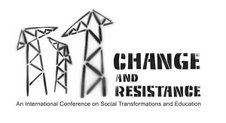Dariusz Galasiński
University of Wolverhampton
In this paper, I shall explore the relationship between masculinity and depression in Polish postcommunism. More particularly, I am interested in how men diagnosed with major depressive episode experience themselves and their illness in the context of the changes of the systemic transformations Poland after 1989, and particularly its labour markets.
I shall demonstrate that despite the particular context of mental illness, my informants draw upon the neo-liberal discourses of work, introduced in Poland immediately after 1989 as the dominant economic ideology. I shall then argue that positioning postcommunist changes explicitly in the stories of mental illness not only hinders recovery, but, importantly, potentially forecloses the possibility of resistance to the ‘performance-based’ model of masculinity
In conclusion I shall offer some comment on the relationship between macro-economic discourses and those of lived experience.
Education for the state of exception
Leszek Koczanowicz
University of Lower Silesia of the Association
for the Advancement of Education (DSWE TWP)
The point of departure of my presentation is the perspective on modernity developed by Italian philosopher Giorgio Agamben. He claims that modernity reduces an activity of human beings to “bare life” stripping them of any traces of dignity and protection by law. The other side of the same process is permanent “state of exception” that is a characteristic feature of contemporary politics. If this diagnosis is valid, and unfortunately a lot of current politics confirms it, we should re-think our educational strategy. Perhaps education should not be about the appropriation of positive ideals but rather about the preparation for the worst. Educators would be obliged to provide those in their charge with instruments for the resistance to this threat. For this reason it is necessary to discuss extensively in the educational theory the aims and means of confrontation with the contemporary politics and the ways of changing it.
University of Lower Silesia of the Association
for the Advancement of Education (DSWE TWP)
The point of departure of my presentation is the perspective on modernity developed by Italian philosopher Giorgio Agamben. He claims that modernity reduces an activity of human beings to “bare life” stripping them of any traces of dignity and protection by law. The other side of the same process is permanent “state of exception” that is a characteristic feature of contemporary politics. If this diagnosis is valid, and unfortunately a lot of current politics confirms it, we should re-think our educational strategy. Perhaps education should not be about the appropriation of positive ideals but rather about the preparation for the worst. Educators would be obliged to provide those in their charge with instruments for the resistance to this threat. For this reason it is necessary to discuss extensively in the educational theory the aims and means of confrontation with the contemporary politics and the ways of changing it.
Subscribe to:
Comments (Atom)
